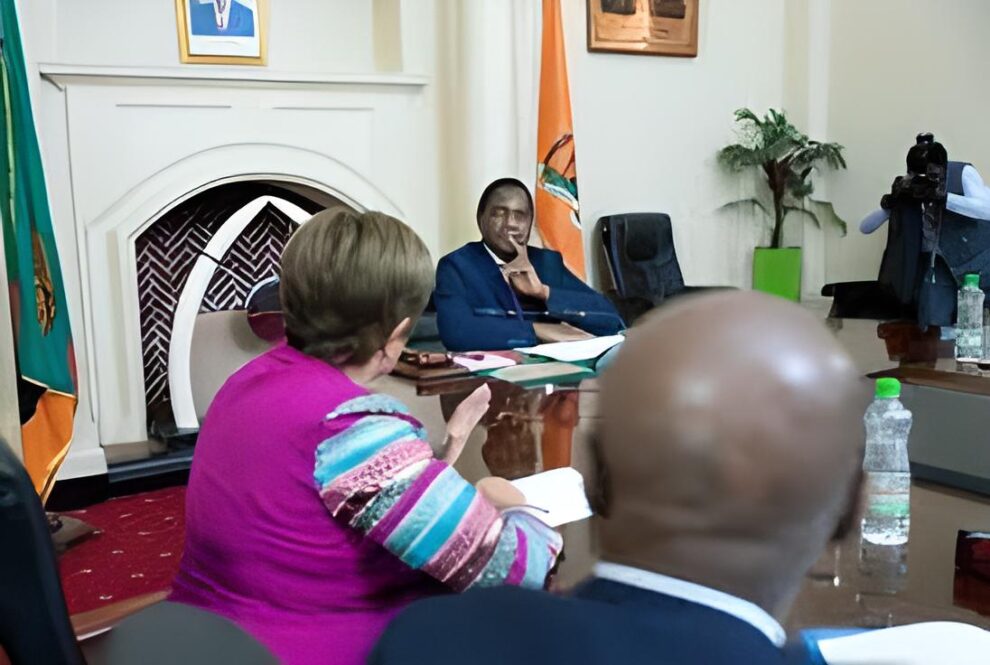The International Monetary Fund (IMF) and Zambian authorities have successfully concluded the second review of the 38-month Extended Credit Facility (ECF)-supported program, reaching a staff-level agreement on economic policies. Led by Ms. Vera Martin, IMF mission chief for Zambia, the staff team visited Lusaka from October 25th to November 8th, 2023, to assess progress within the framework of the ECF arrangement.
The ECF arrangement, approved by the IMF Executive Board on August 31st, 2022, amounts to a total of SDR 978.2 million (approximately US$1.3 billion). The program is built on Zambia’s homegrown economic reforms aimed at restoring macroeconomic stability, ensuring debt sustainability, and promoting higher, more resilient, and inclusive growth
Upon completion of the Executive Board review, Zambia is expected to gain access to about $184 million in financing (SDR 139.9 million), bringing the total IMF financial support disbursed under the arrangement to approximately US$555.7 million.
Ms. Vera Martin expressed satisfaction with the progress made in Zambia’s economic performance, stating, “Amidst challenging conditions, the Zambian economy has performed better than anticipated.” Real GDP growth is projected at 4.3 percent in 2023 and 4.7 percent in 2024, demonstrating the country’s resilience. However, external and domestic challenges have put pressure on the external balance and the exchange rate, leading to inflation.
Economic policies moving forward will maintain a focus on restoring macroeconomic stability and debt sustainability. Additionally, efforts will be directed towards protecting health, education, and social spending, safeguarding financial stability, and implementing structural and governance reforms to unlock Zambia’s growth potential.
In the medium term, the outlook remains favorable, supported by expanding mining production and the completion of the debt treatment plan. The IMF emphasized the importance of proactive reform efforts, particularly in the face of external risks stemming from global economic uncertainty, commodity price volatility, and regional conflicts.
The IMF said that Zambian authorities have demonstrated progress in implementing reforms, including significant fiscal efforts in 2023, which are expected to continue in 2024 to address lower mining revenues. Social spending has been maintained to support the most vulnerable, including free primary education.
Monetary policy may need further tightening to contain inflationary pressures, while building reserves will enhance external resilience. The IMF acknowledged the efforts of the Bank of Zambia in pursuing reforms to strengthen the monetary policy framework and governance, as well as initiatives to fortify the banking sector and promote financial inclusion.
To ensure economic diversification and private sector-led growth, efforts to improve the business climate through anti-corruption measures, transparency enhancements, and beneficial ownership disclosure for government contracts are crucial.
The IMF staff team expressed gratitude to the Zambian authorities for their cooperation and hospitality during the discussions. The team engaged with key figures, including Minister of Finance and National Planning Situmbeko Musokotwane, Governor Denny Kalyala, Secretary to the Cabinet Patrick Kangwa, Secretary to the Treasury Felix Nkulukusa, Deputy Governor Francis Chipimo, as well as representatives from the private sector, civil society organizations, and development partners. The IMF looks forward to continued efforts by the Zambian authorities to reach agreements with all creditors in line with program parameters.
Source: Today News Africa











